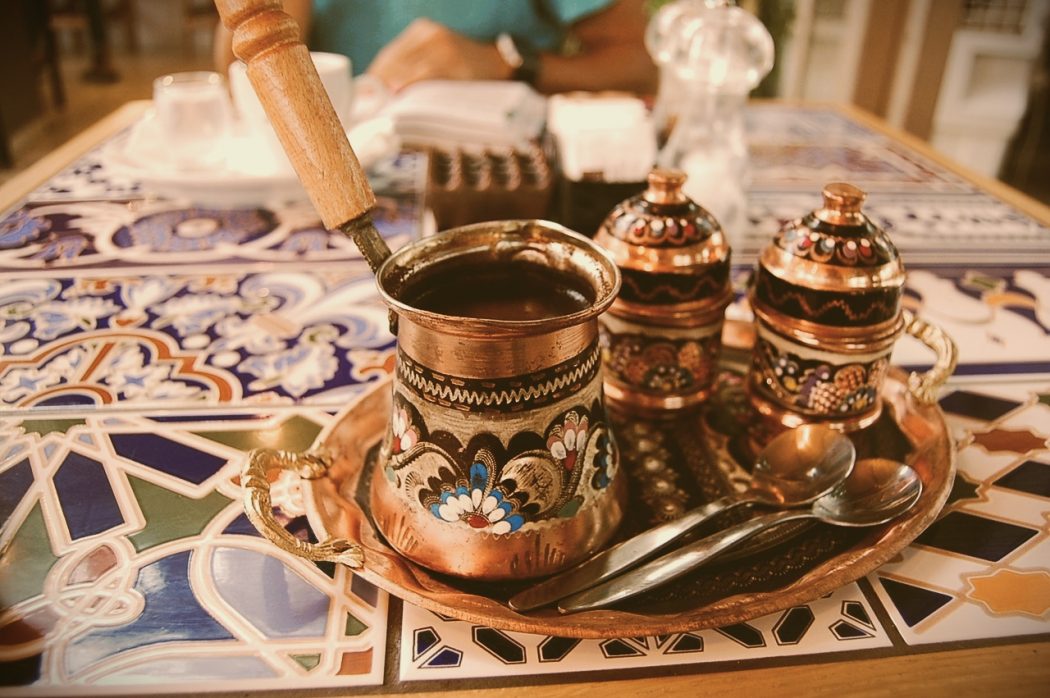This article is dedicated to all those sea-faring refugees who are lost, lost, lost, in the search for something so intangible such as belonging.
Some people awake to the sound of birds chirping or a city awakening, but I am accustomed to the soprano trills of Fairuz, the alto croon of Umm Kalthum, or the Disney bass of Mohamed Abdel Waheb–the sounds of musical legends of the Arab world. My mother’s taste in music is frozen in time. Her morning playlists are a snapshot of a golden era in Middle Eastern history, filled with expression of the arts from the 1950s to 1970s. Although she grew up in the 80s, her genre of music is what she heard and danced to with her own father, an Arabic professor who was well-known for his ability to recite thousands of poems in Arabic from memory. Much of the music from that time took classic poetry and created musical soundtracks around its verses, opposite to today’s modern method of creating beats before fitting lyrics after. Thus, my grandfather had a vested interest in the music that was created around his study. My father, who used to be one of his students, recalls his class and poetry assignments with as much disdain as reverence.
This is how I find myself, a first-generation American, listening to the 40-minute orchestral pieces–in a language I do not know how to speak–while watching B&B videos on the cerebellum. As an Assyrian, an ethnic minority from Northern Iraq, I grew up learning to speak Syriac, not Arabic. Even the languages and music we carry to this day are colored by the changing political landscape of the Middle East. My family comes from a town whose ethnic majority is Kurds who speak Kurdish, but their small ethnic group spoke Syriac at home. The only reason my grandfather became an Arabic professor, why my mother and father learned it in school, was because of the dictatorship at the time mandating Arabic be taught in schools to promote nationalism. The result is playlists with songs sung in Syriac, Arabic, Turkish, Kurdish, and the occasional Michael Jackson hit that made it across the world to Erbil, Iraq.
But regardless of country, ethnicity, and even religion, if you ask anyone in the Middle East about Fairuz, a Lebanese Christian, they will undoubtedly be her patrons. If you play the first few notes of “Alf Leila We Leila,” sung by Um Kalthum, an Egyptian Muslim, we will all know the tune that follows. If you ask me to recognize tunes from any of these singers, I will be able to hum every instrument in the symphony and murmur along to harmonies in a language I know nothing about.
Part of this “golden era” was a very famous Syrian born poet named Nizar Qabbani. Many of the aforementioned musicians used his poetry as lyrics, and Nizar Qabbani is as much a household name as Mark Twain is in the US. One poem, called Qareat Al Finjan or The Fortune Teller, has been my recent favorite since I’ve brainstormed for this article submission. In 1976, with music composed by Mohamed al-Mougy, The Fortune Teller became a hour long musical masterpiece that I loathed listening to as a child because of its never-ending length. I was used to three-minute pop-ballads on the radio, not entire orchestral pieces revolving around a poem about an ominous coffee-ground reading for a difficult and arduous life. The poem goes as so: a man goes on a journey to have his fortune read and when he finally makes it to the Teller’s shop, she tells him he is destined to fall in love and live a life full of great sorrow and longing. She describes many of the perils he will face, comparing his journey through life to a dangerous, sea-faring adventure, but concludes that despite all of this “it is love, my son/That will be forever the best of fates.”
The Fortune Teller is never clear on who is the love interest. Is the woman spoken of a person or is she an idea? Does she represent longing for a lost home, the way that Nizar was forced to flee Syria and spend the rest of his life hopping countries and criticizing the political turmoil of a home he was forced to leave? Like the Teller predicts for the smitten son, pain is similarly part of the future of every refugee when they choose to fall in love with the ideals that the United States represents. While they gain the love for freedom and other virtues, they are ripped away from the fabric of their cultural homeland. When I read the poem’s translation in English, my mother sighs, “almost everything beautiful about it has gone away without it’s rhythm and rhyme in Arabic.”
She, and millions of others displaced from their homes in the Middle East, cradle these poems and these songs symbolic of a different time. It was before the Middle East was associated with US operations and occupations, before times of extremism and censorship. When I think of my heritage, I see the colors of our culture housed in the arts, in music, poetry, and tradition, but I wonder if the western world only sees a dried wasteland of conflict, a desert of a bygone era with only savages left behind.
And now I am here, first-generation, and in many ways, still just as lost as the character in Nizar Qabbani’s poem. The teller is looking me in the eyes as she says, “[with]No land, no home, no address… [you are] pursuing only a trace of smoke/How difficult it is, my [daughter]/To love a [man]/Who has neither land, nor home.”
Translation of “Qareat Al Finjan” with the help of an Arabic teacher of 50+ years, aka my beloved grandfather, Prof. Markoss Gliana:
She sat with fear in her eyes
Contemplating the upturned cup
She said “Do not be sad, my son
You are destined to fall in love”
My son, Who sacrifices himself for his beloved,
Is a martyr
For long have I studied fortune-telling
But never have I read a cup similar to yours
For long have I studied fortune-telling
But never have I seen sorrows similar to yours
You are predestined to sail forever
Sail-less, on the sea of love
Your life is forever destined
To be a book of tears
And be imprisoned
Between water and fire
But despite all its pains,
Despite the sadness
That is with us day and night
Despite the wind
The rainy weather
And the cyclone
It is love, my son
That will be forever the best of fates
There is a woman in your life, my son
Her eyes are so beautiful
Glory to God
Her mouth and her laughter
Are full of roses and melodies
And her gypsy and crazy love of life
Travels the world
The woman you love
May be your whole world
But your sky will be rain-filled
Your road blocked, blocked, my son
Your beloved, my son, is sleeping
In a guarded palace
He who approaches her garden wall
Who enters her room
And who proposes to her
Or tries to untie her plaits
Will be lost, lost, lost, my son…lost
You will seek her everywhere, my son
You will ask the waves of the sea about her
You will ask the shores of the seas
You will travel the oceans
And your tears will flow like a river
And at the close of your life
You will find that since your beloved
Has no land, no home, no address
You have been pursuing only a trace of smoke
How difficult it is, my son
To love a woman
Who has neither land, nor home
References:
My mother, Lana Nabaty, and her father, Markoss Gliana’s extensive music knowledge is to thank for much of the cultural information in this article.
Qareat Al Fengan – Abd El Halim قارئة الفنجان – عبد الحليم حافظ – YouTube – live footage of the song being played in its entirety
Natalie Nabaty is a medical student from the class of 2025 at UACOMP with so many passions she struggles to juggle them all. Between playing guitar, dancing traditional Assyrian line dances, learning about global health, and serving the community, writing is a skill she is happy to refine while in medical school. She graduated from ASU with a Bachelors in Biology and a minor in Psychology. Natalie also spent time doing research in molecular oncology with the Mayo Clinic and Alzheimer’s Disease with Banner Sun Health Research Institute. When she’s not busy with her hobbies, work, and school, she enjoys spending time with her family and friends, exploring the world, and contemplating her existence.


